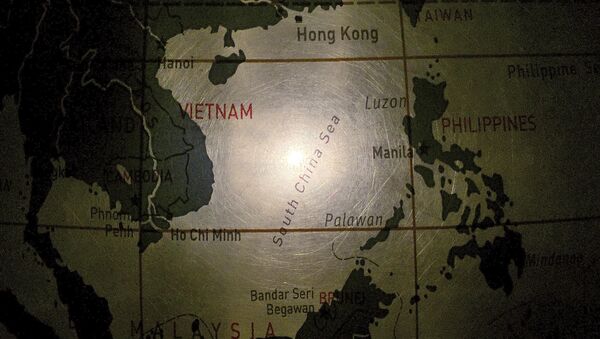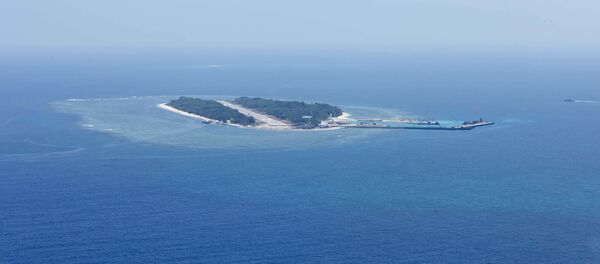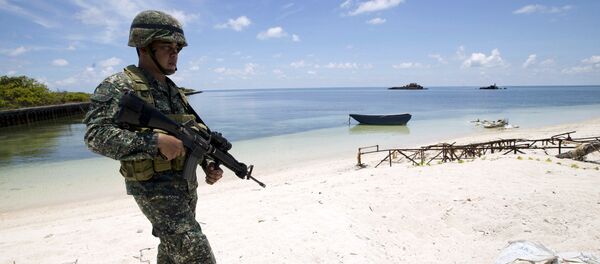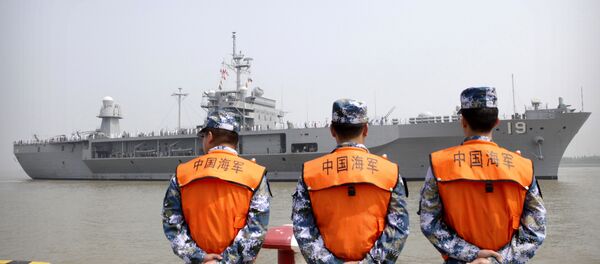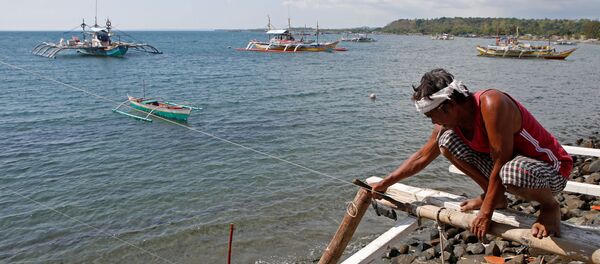On Tuesday, the Hague-based Permanent Court of Arbitration ruled that China has no legal basis for claiming historic rights to resources within the South China Sea's nine-dash line, used by Beijing for its claim over the major part of the sea territory. China, the Court added, also violated the sovereign rights of the Philippines in what it said was that country's exclusive economic zone.
Commenting on the political firestorm that has arisen in Asia over the ruling, RIA Novosti political analyst Dmitri Kosyrev wrote that effectively, the decision by the Court of Arbitration could be judged as "simply a pointless effort." China, he recalled, "had announced in advance that it would not adhere to any decisions on this issue by the Court, confirming as much on Tuesday."
"However, there is actually a point here," the analyst suggested. "And that is to discredit any international arbitration or tribunal."
Kosyrev recalled that the South China Sea drama which is being played out so vividly today is actually a complicated and long-standing dispute regarding exclusive economic zones in the area. Its participants include China, Vietnam, the Philippines, Malaysia, and other states. The situation is further complicated by Taiwan's competing claims, given that state's complex relationship with Beijing.
"The economic zones depend on the ownership of islands and archipelagos, of which there are many in this sea. Besides the islands, there are cliffs and shoals, and here too there are many geological and legal technicalities."
"What's the point in dividing the seas? In part, it's a question of who its fishing resources, oil, gas and other resources belong to." However, in the case of the South China Sea, Kosyrev suggested that "the dispute is not about resources, but, above all, about how to create a situation for China which is strategically untenable in a region has traditionally been considered key to its development. Beijing considers its northern borders with Russia its rear area. This is a country facing south in all respects. And that is why it was necessary for someone to embroil the country in a quarrel with its southern neighbors."
After the Second World War, the countries of Asia each proposed maps claiming islands, islets and rocks they considered their own, and this was considered normal. The region lost its sense of normalcy, according to the analyst, when external forces, primarily the United States "found these differing maps to be a convenient way to provoke conflicts between China and its neighbors, with the aim of preventing Beijing from becoming the world's number one global power. This was done openly, and was never a secret to anyone; countries involved in a dispute with China were provided with all forms of support."
"And provocations are most interesting when the other party gives in to them," Kosyrev suggested. "China, afraid to show weakness, began to explore the islands, to build military bases and settlements. Moreover, it began to turn shoals into islands, pouring earth on them and thus changing, in full accordance with maritime law, the outlines of economic zones."
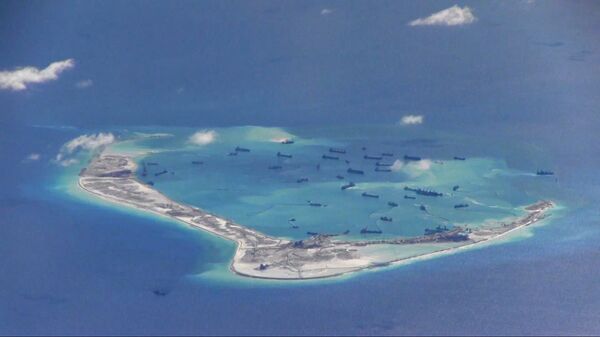
"The story surrounding the Court of Arbitration in The Hague is only part of this struggle, but a noteworthy one," according to the commentator. The Philippines appealed to the court in January 2013; a month later, Beijing announced that it would not participate in the process.
Incidentally, Kosyrev pointed out, "arbitration requires that both parties agree to submit to the Court's decisions; otherwise it's not arbitration." Nonetheless, despite China's refusal to participate, The Hague decided to continue the case. And on Tuesday, it concluded its efforts, and as might be expected, did not rule in China's favor.
In the last several months, "China itself has played this situation to full effect in propaganda terms. In recent months, while the US media focused all its attention on Donald Trump, Chinese media talked about nothing but the conflict in the South China Sea – that is, five or six commentaries in every edition of the news, every day."
And it's not just the Chinese, but the media of other countries as well, along with prominent lawyers," Kosyrev noted. "They all point to the obvious: in the United Nations Convention on the Law of the Sea, Article 298 precludes implementation of the decisions of arbitration in instances where both parties have not agreed to arbitration."
"And the United States, which has so long and pointedly urged China to comply with international maritime law, has not even signed the UN Convention themselves, unlike the 160 other states which have done so, China included."
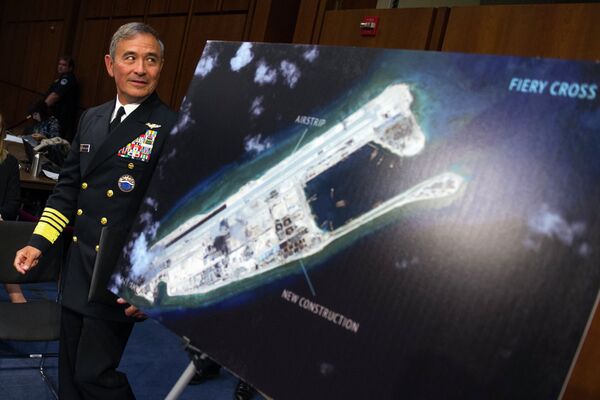
For its part, the commentator noted, "Russia has diligently sought to avoid taking one side in disputes in which several of its friends and partners in Asia are involved; in the same way, China remained officially neutral in the situation around Ukraine and Crimea. But we too are making our own conclusions, including whether or not to expect anything but propaganda campaigns from any other international arbitrations or tribunals in the future," including, presumably, those involving Russia.
As expected, Perfecto Yasay, the Philippines' new Foreign Affairs Minister, officially welcomed the Court's decision. At the same time however, he has also emphasized recently that negotiations on sharing the sea region with China would have to continue. This, Kozyrev suggested, begs the obvious question: "why was the case filed in the first place?"
"Generally speaking, what the minister stated was obvious." His words were confirmed by President Duterte, who has also said that it would be necessary to negotiate. Effectively, "Manila was used for propaganda purposes, and what did it receive? In the best case, nothing," Kozyrev concluded.

